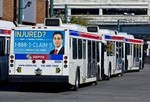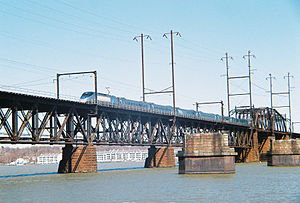
- Image by Getty Images via Daylife
In the early hours of Sunday morning, a driver on Philadelphia’s SEPTA system noticed one of her passengers, an elderly man, was unresponsive, had urinated on himself, and was drooling. When advised, the control center ordered her to continue to operate her route, not wanting to delay service. A supervisor boarded as she proceeded and checked the man, advised he was breathing but unresponsive, then instructed her to proceed to her terminal, making all stops, where the police would meet her.
Roughly 40 minutes later, at the terminal, the man was pronounced dead. A spokesman for SEPTA insists protocol was followed, and that it appeared to be an intoxicated passenger who had passed out, a not uncommon occurrence. Approximately, 10 to 12 people die on SEPTA vehicles or in stations each year.
Transport Workers Union Local 234, which represents the driver, intends to file a grievance.
We’re just as shocked as the driver here. A passenger was unresponsive and in possible need of medical assistance, and the driver was ordered to proceed for another hour to the Frankford Transportation Center. Here’s a transcript of communications between the driver and dispatch.
Let’s assume the supervisor legitimately thought the passenger was merely passed out from excessive drinking and wanted the route to continue undisturbed. Was the supervisor qualified to give a medical diagnosis? Did he have any medical training?
Why weren’t the police dispatched to a stop much closer then the end of the line? Why were the police dispatched and not qualified medical personnel? Has SEPTA not heard of the expression abundance of caution?
What do you think?




